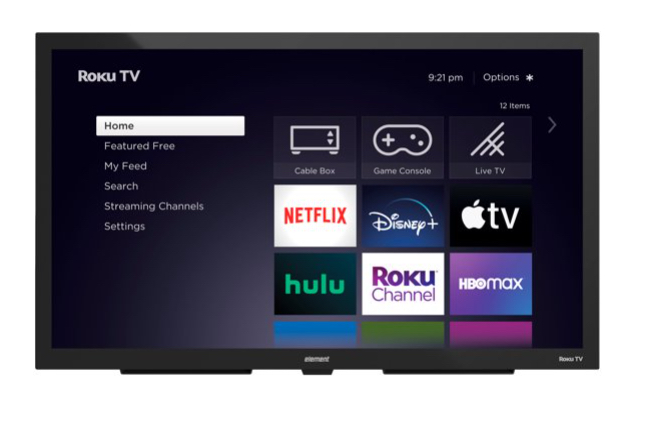Roku Stock Dives Following Downbeat Earnings Outlook
Shares down 29% following disappointing Q2 report

The smarter way to stay on top of broadcasting and cable industry. Sign up below
You are now subscribed
Your newsletter sign-up was successful
Roku stock plummeted 29% in early trading Friday following the company’s disappointing second-quarter earnings report late Thursday.
Shares traded at $65.20, down from $85.17 at the close on Thursday and a 52-week high of $449.60 a year ago.
“Roku reported a frankly awful 2Q and 3Q guidance as it appears our main concern around the company suddenly hit them like a freight train,” Pivotal Research principal and senior analyst Jeff Wlodarczak said.
“The most important question on these results is if indeed Roku (stock) is Broku as the stock price in the after-market is indicated down 25% to $63 post these results,“ Wlodarczak said “As evidenced by our new $60 target price we believe the shares are fairly valued around the $60 level.
Also: Roku Drew Record $1 Billion in Ad Commitments in Upfront
“We also believe management will be in the penalty box for at least the balance of ’22 given their decision to massively ramp expenses at the peak of the economy, results for at least the 6-12 months are likely to be frankly mediocre, a recessionary environment is likely to lead to a heightened competitive environment where most of their competitors are much better positioned to take advantage of the environment and we see the stock treading water from here at best,” Wlodarczak said.
“Roku’s 2Q 2022 results were the sum of all of our worries,” MoffettNathanson analyst Robert Fishman said.
The smarter way to stay on top of broadcasting and cable industry. Sign up below
“The company’s recent run of results, like many others over the past few years, were propped up by the massive acceleration in streaming video that has now faded as the world has opened up,” Fishman said.
Fishman described Roku as being locked in a three-sided war. It battles Amazon, Alphabet and TV original equipment manufacturers (OEMs) for market share in connected TVs, it fights a plethora of streaming platforms for audience impressions, and a growing number of ad-supported VOD players — now including Netflix and Disney Plus — for connected TV streaming ad dollars.
“Obviously, this is not an ideal market structure,“ he said. “As such, given the shortfall in ad revenues and player sales, Roku now has to slow down their investment spending in growth areas to preserve cash and protect margins.”
But wait. It might get worse.
“Despite all of these concerns, we could not have imagined the incredibly weak 3Q 2022 guide of only 3% growth in total net revenues vs. our prior estimate of 29%,” Fishman said. “While the company was clear that a consumer slowdown in player sales were to blame, we think the scale of this deceleration (2Q 2022 revenue growth was 18% vs. our estimate of 21%) and downgrade of 3Q 2022 expectations speaks to the relative uneasiness of Roku’s core advertising clients.”
Wells Fargo media analyst Steven Cahall lowered his price target for Roku stock from $115 to $64 in a report Friday.
“2Q22 shows that Roku is actually more exposed to recession than traditional TV advertisers due to the less sticky nature of the relatively new CTV marketplace,” Cahall said.
“Roku’s growth is slowing as advertisers ‘significantly curtail or pause spend in the scatter market," Cahall said, quoting Roku’s letter to shareholders. “This is a shock for the stock because CTV was believed to be a secularly growing ad channel and thus should have proven less volatile and/or gained share in a recessionary environment.” ■
Jon has been business editor of Broadcasting+Cable since 2010. He focuses on revenue-generating activities, including advertising and distribution, as well as executive intrigue and merger and acquisition activity. Just about any story is fair game, if a dollar sign can make its way into the article. Before B+C, Jon covered the industry for TVWeek, Cable World, Electronic Media, Advertising Age and The New York Post. A native New Yorker, Jon is hiding in plain sight in the suburbs of Chicago.

